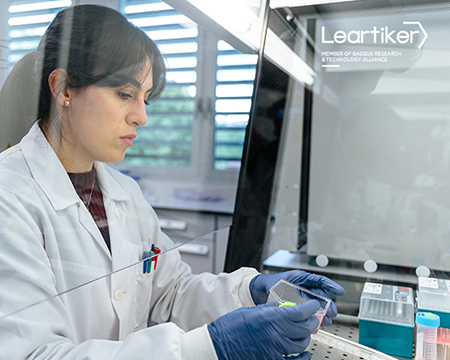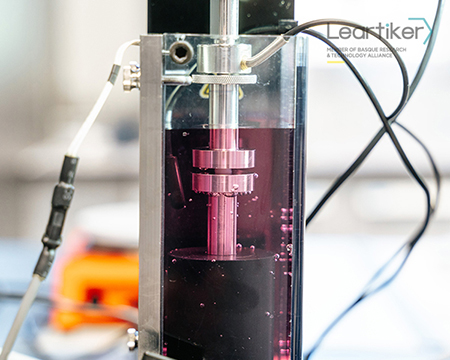Leartiker promotes breast cancer research with its new cell culture laboratory
At the beginning of the year, Leartiker inaugurated the Applied Biomaterials Lab, a space that reinforces its commitment to biomedical research. This new working environment allows for progress to be made on projects that require specific conditions for cell culture and study, such as the one being developed by Ana Zubiarrain Laserna, a researcher in Leartiker's Health area, as part of her doctoral thesis, carried out in collaboration with the University of Granada.


Cancer and viscoelasticity: towards more realistic models for research
Breast cancer is the most diagnosed type of cancer and the leading cause of cancer death among women. Despite advances in diagnosis and treatment, there is still a need to find new biomarkers to improve therapeutic accuracy and increase survival rates.
In this context, Ana's thesis proposes to explore tissue viscoelasticity as a possible biomarker. Recent studies have shown that not only stiffness, but also the viscoelastic behaviour of the extracellular matrix, can influence cancer progression. To investigate this hypothesis, in vitro models based on highly biomimetic hydrogels are being developed, capable of replicating both the mechanical and biological properties of tumour tissue.

A laboratory equipped to cultivate knowledge
The new laboratory allows cells to be studied in a controlled environment, which is essential for creating in vitro breast cancer models. This space is complemented by the equipment already available at Leartiker for characterising the mechanical behaviour of biomaterials and biological samples, which is key to studying the viscoelastic properties of the hydrogels designed as part of the thesis.
Zubiarrain is currently generating decellularised extracellular matrix (dECM) from breast cancer, which will be combined with alginate hydrogels with modifiable mechanical properties. This combination will make it possible to create more realistic environments for the cultivation of tumour cells. In later stages, breast cancer cells will be cultured in these hydrogels to study how the properties of the matrix affect cell behaviour and their response to different drugs.
This approach opens the door to new strategies in personalised medicine, as it allows models to be adapted to different types of cancer or even to samples derived from patients.
A project that opens doors to new research
In addition to contributing to advances in oncology, the knowledge generated in this thesis can be applied to other lines of research in Leartiker's HEALTH specialisation. For example, in the customisation of biomaterials for tissue regeneration or in the development of tumour models integrated into microfluidic chips.
This project reflects the potential of interdisciplinary research and Leartiker's commitment to developing innovative solutions in the field of health. The new laboratory and the capabilities it offers will enable further exploration of new avenues of research with scientific, technological and social impact.

